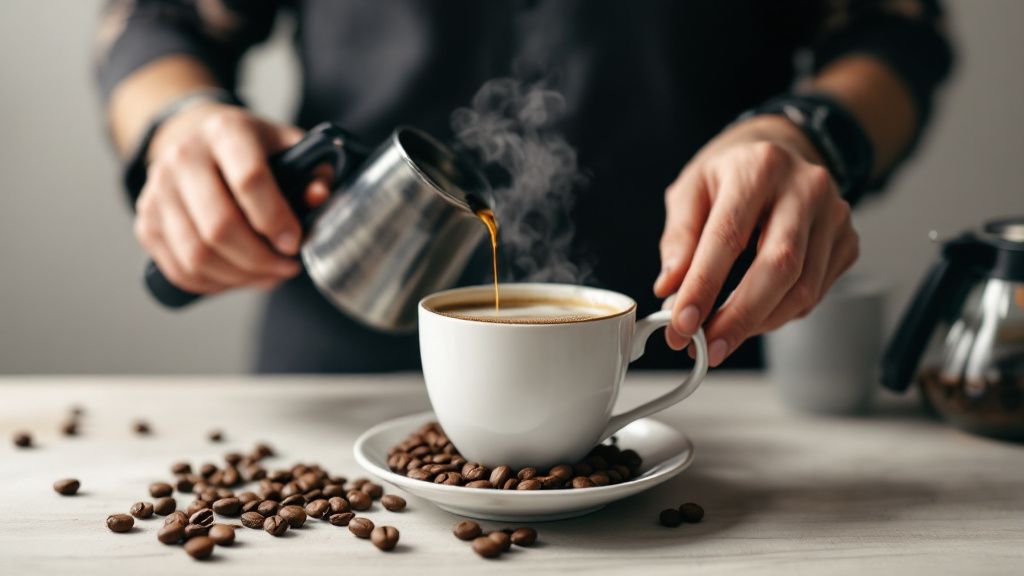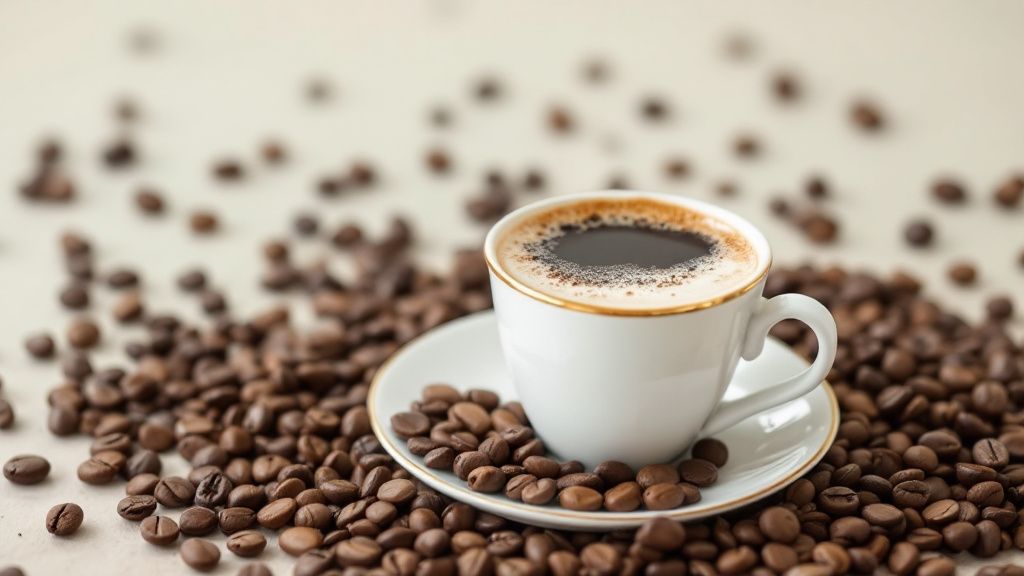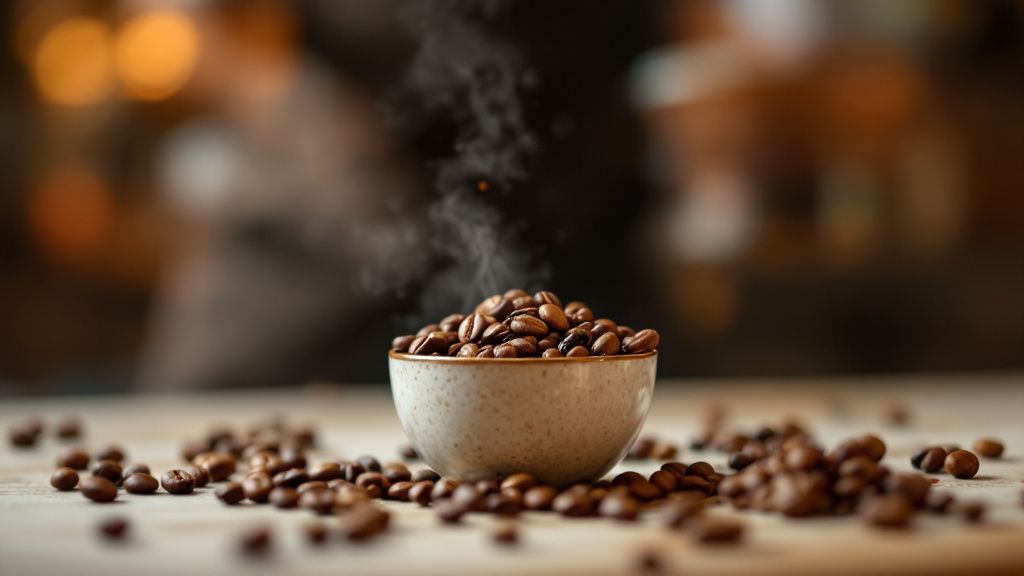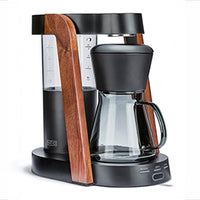Why “Fresh” Doesn’t Always Mean Better in Coffee Brewing
Key Takeaways
- Freshly roasted coffee beans need time to degas before brewing to avoid a sour taste.
- Coffee flavor improves with time as beans develop complexity after roasting.
- Engaging with local coffee roasters provides insights into achieving optimal flavor.
- Understanding coffee's maturation helps in identifying the best time to brew.
- Allowing coffee to rest can transform an ordinary brew into an exceptional experience.
In your coffee quest, it's easy to think that fresher is always better. While the appeal of fresh coffee is potent, it's not the universal rule in brewing. Coffee beans need time after roasting to degas and reach optimal flavor. Immediately brewed coffee from freshly roasted beans can result in a sharp, sour taste, lacking the complexity you crave. Engaging with local coffee roasters can provide insights into the best coffee beans that have matured to their flavor peak, far superior to those just out of the roaster. Exploring the best ways to brew coffee reveals that patience can truly enhance your coffee experience.

Understanding Coffee Freshness
When exploring coffee freshness, what most people don’t see is the delicate dance of gases inside the beans that makes all the difference. Freshly roasted coffee beans undergo degassing, where they release carbon dioxide. This process is crucial because it directly impacts the flavor profile of the brew. Brewing too soon can trap these gases, leading to a less balanced cup. Waiting a few days after roasting can unveil a smoother and more nuanced flavor.
The timeline for coffee freshness is not universal. Ideal freshness depends on the bean type and even the local coffee roasters' roasting techniques. Generally, most coffee enthusiasts suggest waiting around three to seven days post-roast. This waiting period allows the beans to mature, revealing the complexities they hold. Such variations emphasize why understanding freshness is crucial to unlocking the best flavor from the best coffee beans.
Engaging with local coffee roasters can be an enlightening experience. They often possess deep knowledge about their beans' journey from farm to cup. By discussing the best ways to brew coffee, they might steer you towards optimum freshness and brewing timings tailored to their beans. Therefore, allowing them to guide you can significantly enhance your brewing results, offering a flavorful and satisfying coffee experience.

When Fresh Coffee Can Be Detrimental
Freshly roasted coffee might seem irresistible, yet brewing it too soon can be detrimental to your coffee's taste. Right after roasting, coffee beans release trapped carbon dioxide in a process called degassing. Brewing during this stage can interfere with flavor extraction, leading to a cup that’s harsh and underdeveloped. Understanding this delicate process helps you choose the right moment for brewing.
Think of fresh coffee like a newly baked loaf of bread. Just as a loaf needs time to cool to reveal its best texture and flavor, coffee beans need time to rest after roasting. This resting time allows the beans to shed excess gases and develop their true flavor profile fully. Jumping in too early can compromise the subtleties you seek in the best coffee beans.
In the world of coffee enthusiasts, patience is key. Exploring different best ways to brew coffee requires an understanding that coffee must be at its peak. Some local coffee roasters might advise you on the precise waiting period for their beans, ensuring you don't sacrifice quality for immediacy. Learning the ideal timing can turn an average brew into an exceptional sensory experience.

The Science of Coffee Flavor Development
Coffee flavor development is a fascinating scientific process heavily influenced by chemical reactions. Roasting coffee transforms its beans through the Maillard reaction, where proteins and sugars interact to create the complex flavors you enjoy. This reaction continues post-roast as beans rest and degas, allowing nuances to evolve. Understanding this science can elevate your appreciation and approach to finding the best coffee beans.
Looking at coffee flavor through the lens of chemistry, we can see that timing and temperature work in tandem to shape the brew. During roasting, flavor compounds are released, and only some reach their peak immediately. The rest develop over time as beans expel carbon dioxide, an integral part of crafting an exceptional brew. This gradual unveiling of flavor helps you grasp why a little patience can result in better coffee.
Exploring the best ways to brew coffee means acknowledging the importance of bean maturity. Local coffee roasters often possess the know-how to guide you through this maturation period, ensuring that your brew reaches its full potential. Their expertise, combined with your understanding of the science behind coffee flavor, creates a rich tapestry of taste and aroma that transforms a simple cup of coffee into an art form.

Takeaways for Coffee Enthusiasts
As a coffee enthusiast, recognizing the role of freshness in brewing is essential. The journey doesn't end at acquiring freshly roasted beans; it’s about timing their use perfectly. Allowing beans to rest ensures the complex flavors have matured, resulting in a richer cup. You’ll discover the nuances in taste when you engage with local coffee roasters who understand the intricate balance of time and flavor.
In the next few years, coffee enthusiasts are likely to embrace aging coffee like fine wine, seeking beans that develop depth over time. This bold prediction highlights a shift in how you might view coffee freshness. Aging coffee could become an art form, changing your perception of what makes the best coffee beans truly exceptional.
To fully appreciate coffee, explore the best ways to brew coffee by experimenting with brew methods like pour-over or French press. Each method interacts differently with the bean's characteristics. By understanding the science of coffee flavor development, you can create unique and personalized coffee experiences. This knowledge empowers you, transforming a routine ritual into an exploration of flavors.
Frequently Asked Questions
Why isn't the freshest coffee always the best?
Immediately after roasting, coffee beans release gases that can hinder flavor development, making fresh brews taste sour and unbalanced.
How long should I wait before brewing freshly roasted coffee?
It is generally recommended to wait 3 to 7 days after roasting to allow the beans to degas and develop optimal flavor.
Can I use a fresh coffee bean for any brewing method?
Waiting for the beans to rest is beneficial for all brewing methods, as it enhances the overall flavor profile regardless of the method used.
How do local coffee roasters benefit my coffee brewing?
Local coffee roasters can provide personalized advice on ideal resting periods and best brewing practices specific to their beans.
Does the type of coffee bean affect the waiting period?
Yes, different varieties and roasting styles may require different resting times, which is why consulting your roaster is helpful.
 Ratio Eight S2
Ratio Eight S2
 Ratio Eight Original
Ratio Eight Original
 Ratio Six
Ratio Six
 Ratio Four
Ratio Four
 Compare Machines
Compare Machines






